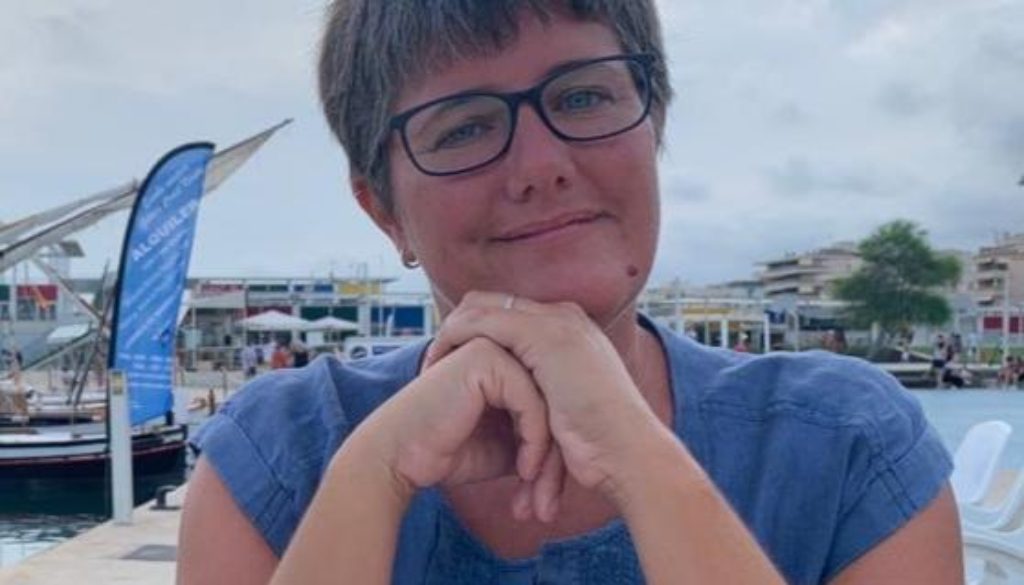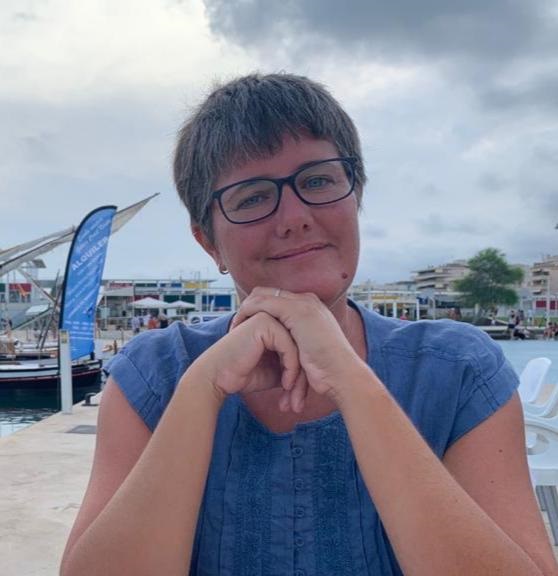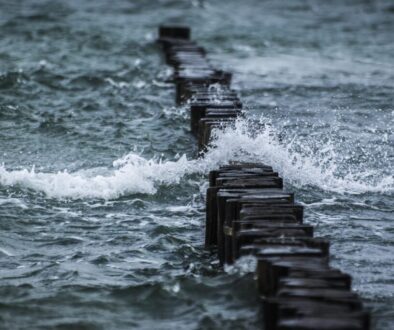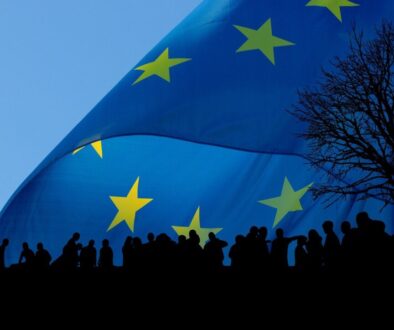Promicanje održivog ribolova na Balearskim otocima: Anna Masdeu Lalanza pridružuje se timu LIFE kako bi upravljala ovom novom inicijativom.
Udruga ribara s niskim utjecajem na okoliš (Low Impact Fishers of Europe) udružila se sa Zakladom Marilles (https://marilles.org/en) kako bi pokrenula novu inicijativu, „Program održivog ribolova“ na Balearskim otocima. Cilj joj je nadograditi dugogodišnje iskustvo malih ribara u razvoju održivog ribolova oko otoka. Riječ je o novom pothvatu za LIFE, koji će uključivati suradnju s ribarskim zajednicama i ribarskim udrugama na lokalnoj razini.
Anna Masdeu Lalanza pridružila se Teamu LIFE 1. rujna kako bi preuzela novu poziciju projektne službenice za Program održivog ribarstva. Bit će odgovorna za razvoj programa rada s ribarskim zajednicama i ribarskim udrugama.
Anna je iskusna menadžerica, s iskustvom u trgovini i upravljanju ribarskim projektima. Do nedavno je bila voditeljica Lokalne akcijske skupine za ribarstvo Costa Brave (FLAG).
Anna, dobrodošla u LIFE! Kako si saznala za radno mjesto i prije nego što si se prijavila za posao, jesi li znala za LIFE i kakvi su tvoji dojmovi o organizaciji?
Puno vam hvala. Zadovoljstvo mi je biti dio vaše organizacije i ovo je profesionalna prilika u kojoj se nadam da ću moći doprinijeti svime što znam, a također i učiti iz vašeg iskustva.
Prvi put sam čuo ime LIFE krajem 2017. godine kada sam razgovarao s nekim mladim ribarima s Costa Brave koji su osnivali udrugu uz savjet LIFE-a. U to vrijeme bio sam voditelj Lokalne akcijske skupine za ribarstvo Costa Brave u Kataloniji i jedan od mojih zadataka bio je saznati više o ribarskoj situaciji u tom području razgovarajući sa svim akterima. Od tada znam da je LIFE, preko Marte Cavallé, koordinatorice LIFE-ovog Mediteranskog programa, sudjelovao i još uvijek sudjeluje u Odboru za zajedničko upravljanje Zaljevom ruža i sipa Pals, koji je započeo tijekom 2018. godine na području Costa Brave, odobravajući plan upravljanja koji je dogovoren u veljači ove godine.
LIFE je platforma koja omogućuje da se glas malih ribara čuje na višoj razini u suradnji s drugim ribarskim organizacijama kao što su Cofradije i/ili Federacije. Koordinirano sudjelovanje svih mogućih aktera nužno je za bolju obranu uloge ribara jer se u nadolazećim godinama suočavamo s mnogim izazovima.
Posljednje 3 godine bili ste upravitelj FLAG-a Costa Brava. To vas je dovelo u bliski kontakt s ribarima i njihovim problemima. Po vašem mišljenju, koji su najveći izazovi s kojima se suočavaju mali ribari i koji su ključni problemi s kojima se suočavaju u smislu spajanja kraja s krajem?
Općenito, svi ribari u Sredozemnom moru suočavaju se s velikim izazovom, a to je postizanje ODRŽIVOG RIBARSTVA. Taj veliki izazov uključuje sustavnu i globalnu viziju što ribolov znači za čovječanstvo. Ne govorimo samo o vađenju resursa iz morskog okoliša kako bismo pokrili prehrambene potrebe stanovništva, govorimo o mnoštvu sociokulturnih, ekonomskih i okolišnih međuodnosa itd., vrlo složenoj strukturi dinamičnih mreža koje djeluju na različitim razinama. Održivi ribolov mora uključivati optimalno upravljanje ribolovnim resursima, stvarno poznavanje doprinosa ribarstva lokalnom gospodarstvu u obalnim područjima, osiguravanje da ribari zarađuju pošten život, poboljšanje imidža ribara, očuvanje i širenje njihove kulturne i prirodne baštine itd. Dakle, kao što vidite, održivost se mora rješavati na mnogim frontama, a sve su one izazovne.
Postizanje poštenog dogovora i izravno dosezanje potrošača glavni je izazov za male ribare. Kako će ovaj projekt pomoći ribarima da postignu te ciljeve?
Dobivanje poštene cijene za svježu ribu je izvan naših ruku. Tržište ribarstva je vrlo proždrljivo i nažalost izravno utječe na sve ribare u Sredozemlju. Oni ne mogu i ne bi trebali konkurirati cijenom ribi iz drugih odredišta, ali mogu diferencirati svoj proizvod u smislu kvalitete. To je posao koji se obavlja u ribarskim udrugama diljem Sredozemlja, pokušavajući diferencirati sebe i svoje proizvode od ostalih u smislu kvalitete. Kvaliteta znači raditi stvari bolje nego što potrošač očekuje, a u slučaju svježe ribe to znači postići optimalno upravljanje ribarstvom, kao i pedantno brinuti se o svom proizvodu i kratkom lancu (ili izravnom) marketingu. To je zato što potrošač koji je spreman pošteno platiti želi da riblji proizvod bude održiv, svjež, lokalan i u sezoni. To mora biti naš potrošač, potrošač koji je predan održivosti.
Još jedan važan aspekt projekta je zajedničko upravljanje. Koji su po vašem mišljenju ključni čimbenici uspješnog zajedničkog upravljanja?
Suupravljanje je model upravljanja koji uključuje okupljanje svih aktera za isti stol kako bi se riješila određena situacija. Obično ga čine ribari, uprava, znanstvenici i nevladine organizacije. Svi oni sa svojim interesima i problemima. Cilj je posredovati u sukobima i braniti interese kako bi se postigao konsenzus. Ključni čimbenici su slušati i razumjeti sve strane te pokušati ih sve nagovoriti na suradnju i kompromis kako bi se postigao zajednički cilj. Ovo je model upravljanja za koji se nadamo da ćemo ga moći uspostaviti i ojačati u nadolazećim godinama na Balearskim otocima.
Kažu da je ribolov muški svijet. Što vas je privuklo ribarstvu i, kao žena koja radi u ribarstvu, kako doživljavate ulogu žena u tom sektoru?
Već nekoliko godina razne akcije ističu žene koje su oduvijek bile dio sektora, ali čija uloga nije bila prepoznata. Istina je da su većina onih koji se bave ribolovom muškarci, zbog težine poslova, uloga i dinamike uspostavljene od davnina i koju je teško promijeniti. Ribarski sektor u sjeverozapadnom Mediteranu sastoji se od obiteljskih mikropoduzeća, gdje su žene obično dio tvrtke i uključene su u administrativne i komercijalne zadatke. Mnogo generaliziram jer svako područje zaista ima svoje osobitosti i ovisno o razvoju obiteljskog posla, supruga i djeca ribara nastavljaju s obiteljskim poslom ili ne.
U mom slučaju, nemam izravnog podrijetla s ribarstvom, ali mogu vam objasniti slučaj mog pradjeda koji je bio ribar iz Nerje (Malaga), koji je imao 6 kćeri (jedna od njih je bila moja baka s majčine strane) i sina (najmlađeg). Za njegove kćeri nije bilo budućnosti u ribarstvu, pa su odlučile emigrirati u Barcelonu kako bi naučile krojački zanat.
Moj prvi kontakt s ribarskim sektorom bio je 2017. godine kada sam se pridružila kao voditeljica Lokalne akcijske skupine za ribarstvo Costa Brava. Nisam stručnjakinja za upravljanje ribarstvom, ali dolazim iz područja lokalnog gospodarskog razvoja temeljenog na primarnim sektorima poput poljoprivrede i ribarstva te tercijarnim sektorima poput turizma. Ja sam žena mora, živim uz more i prilika koju sam imala zahvaljujući svom radu u FLAG-u Costa Brava da upoznam ribarstveni sektor u Kataloniji otvorila mi je beskrajne mogućnosti za učenje, rad za i sa sektorom. Nažalost, vrlo dobro znam što znači kada ribarska aktivnost neke općine nestane u trenu s izgovorom napretka; ako ne znate, samo pitajte ribare iz Nerje (Malaga) i Calafella (Tarragona) - oni će vam reći.
Nakon što se smjestite na posao, što će vam biti prvi prioritet?
Prvi tjedni sastoje se od detaljnog upoznavanja s projektom suradnje između LIFE-a i Zaklade Marilles, u kojem se, nakon procjene provedene tijekom 2019., već predlažu neke kratkoročne i srednjoročne akcije. Sljedeći tjedni sastojat će se od upoznavanja svih aktera na Balearskim otocima, posebno ribara i cehova (Cofradias). Svjestan sam nekih inicijativa koje promiču ribarske udruge Ibize, Sant Antonija i Formentere u suradnji s Leader Action Group. Znam to jer smo nakon posjeta ribara iz tih udruga Costa Bravi 2018. uspostavili bliski odnos.
U nadolazećim godinama, razvoj plavog gospodarstva vjerojatno će dominirati političkim i zakonodavnim programom na Mediteranu. Koje prilike i prijetnje plavo gospodarstvo predstavlja za sektor malog ribarstva?
Po mom mišljenju, plavo gospodarstvo je prilika za obalna područja i obale Mediterana da prestanu usmjeravati svoje gospodarstvo na turizam kao što su to činili od 1960-ih. Turizam je nesumnjivo gospodarski motor, ali je vrlo osjetljiv na situacije koje sprječavaju ljude da putuju. To vidimo sada s pandemijom koja nas pogađa, ali i u ranijim prilikama. Lokalno gospodarstvo obalnih općina mora se temeljiti na plavom gospodarstvu. Naš je posao pokazati da unutar plavog gospodarstva profesionalni ribolov, koji uključuje male ribare, igra temeljnu ulogu na Mediteranu, da je to prava prilika za nove generacije i da, iako je njihovo sudjelovanje u ekonomiji razmjera skromno, doprinosi drugim sociokulturnim i okolišnim čimbenicima potrebnim za provedbu plavog i/ili zelenog gospodarstva na mediteranskoj obali. Ribari jesu i uvijek će biti čuvari mora.
Za više informacija kontaktirajte: Briana O'Riordana, izvršnog tajnika LIFE-a, deputy@lifeplatform.eu.





